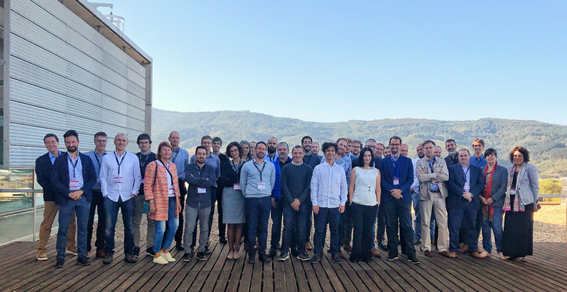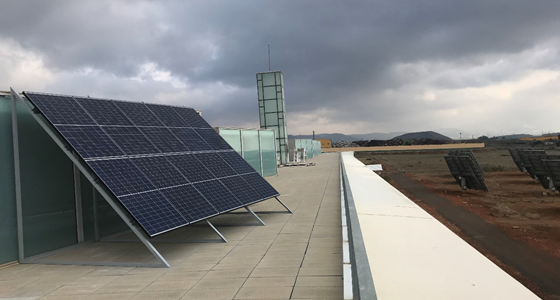The ISFOC headquarters building will be used for the installation, monitoring, and evaluation of the new developments carried out in the project.
BIPVBOOST is a new European project in the field of R&D+i funded by the European Commission under the Horizon 2020 programme. BIPVBOOST began in early October 2018. The first project meeting, held from 4th to 5th October at TECNALIA’s facilities in Bilbao, brought together the 19 consortium partners and served as the starting point for the project.

The main objective of the BIPVBOOST project is to reduce the cost of manufacturing processes and various photovoltaic technologies designed to function as Building-Integrated Photovoltaics (BIPV), meeting key market requirements and contributing to the widespread adoption of these systems in nearly zero-energy buildings (nZEB).
The penetration of BIPV systems and technologies into the market has been hindered in recent years by the industry's difficulties in providing integrated solutions that meet key market demands such as aesthetics, design flexibility, and cost-effectiveness. Therefore, a joint industrial effort is crucial to conceive and develop highly efficient and multifunctional building materials that generate energy and enhance global market opportunities for both the photovoltaic and construction industries.
The BIPVBOOST project addresses these challenges by aiming to reduce costs in the short and medium term for the entire BIPV value chain:
-
Flexible and automated manufacturing process for BIPV solutions.
-
Development of a broad portfolio of multifunctional BIPV products.
-
Digitised process and energy management system.
-
Advanced standardisation activities supporting the qualification of BIPV systems for widespread implementation in buildings.
The project, led by TECNALIA, will be carried out by a multidisciplinary team of 19 partners from 7 European countries, including both industrial and research partners. Additionally, the project features four demonstration buildings (PIZ, Mondragón Assembly, ISFOC, OPTIMAL Computing), selected based on criteria such as geographical distribution, types of construction and use, market replication possibilities, and capacity to support project activities. The industrial partners (15 out of 19) cover the entire industrial BIPV value chain, including architects (VIRIDEN), equipment manufacturers for BIPV solutions (Mondragón Assembly), BIPV solution manufacturers, photovoltaic glass for buildings and flexible photovoltaic modules (ONYX, FLISOM), manufacturers and experts in roofing façade solutions (TULIPPS, PIZ, SCHWEIZER), general contractors (COMSA), software developers (EnerBIM, OPTIMAL), and experts in building energy management systems (3E). Additionally, experts in the photovoltaic and BIPV market, business models and policies (ICARES Consulting), dissemination and communication (WIP), and life cycle analysis (CYCLECO) provide relevant expertise in their fields. Finally, the consortium's four research entities (TECNALIA, SUPSI, EURAC, and CSTB) constitute the central support for technical activities.

At least 17 innovative solutions will result from the successful development of the BIPVBOOST project. The large participation of industrial partners in the consortium provides a solid foundation for achieving a 50% reduction in the additional cost of BIPV modules by 2020 and a 75% reduction by 2030, thus substantially increasing the market uptake of BIPV technology.

EThe BIPVBOOST project is funded by the European Union's Horizon 2020 research and development programme - Grant Agreement No: 817991.
.png)
.png)
.jpg)



